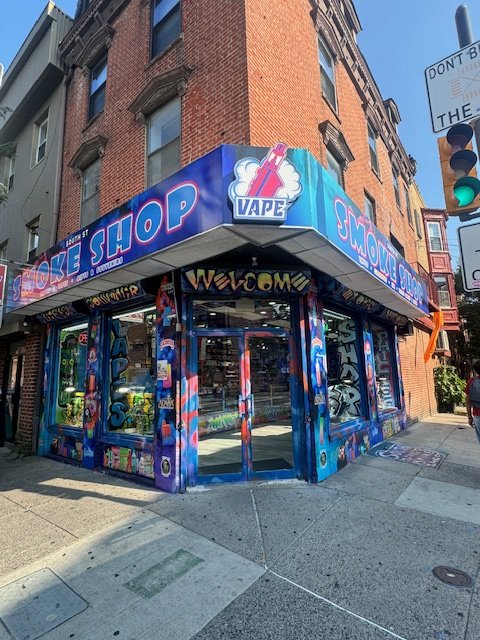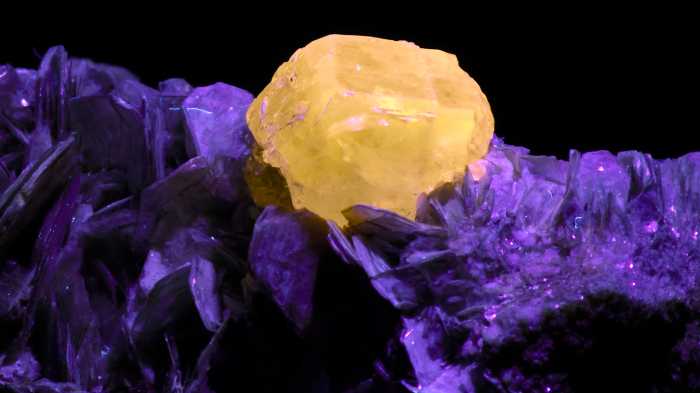Philadelphia’s Magic Gardens is recognizable in its own right — a stroll in South Philly can show you its impact — but there’s a new reason to head to the venue this sunny season, and it’s open to the public until Sept. 15.
‘After the Flowers Pass: Works by Amir Khadar’ is now on display at the venue’s indoor gallery. It features “otherworldly” textile and mixed media creations by Sierra Leonean-American multidisciplinary artist, designer, and educator Amir Khadar (they/them).
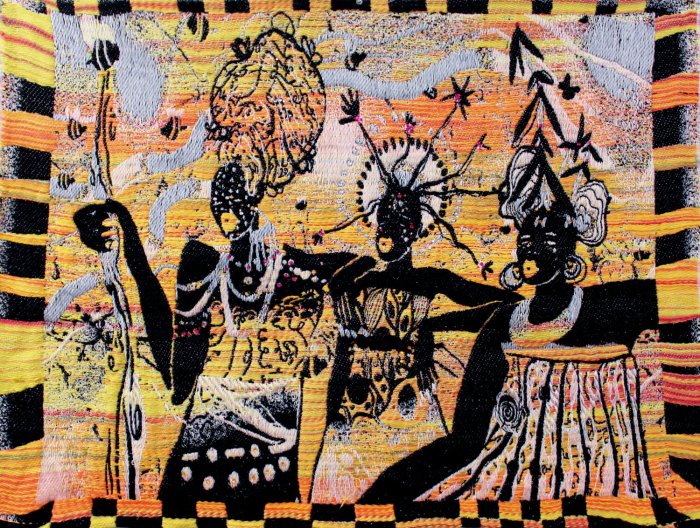
Khadar, a local artist, focuses their work on decolonization by bridging the gap between fantasy and reality. With ‘After the Flowers Pass’ specifically, visitors will see various weaving, dyeing, and beading techniques plus a sewing technique called Appliqué, in which fabric patches are layered on a foundation and then sewn in place by hand or machine with decorative stitching.
Khadar also utilizes Digital Weaving to convert drawings, mixed media sketches, and paintings into digital files for weaving. As a release notes, the textiles are then decorated through several methods.
In one piece, Khadar adorns the subjects with glass beads and sequins to act as ornamentations, as well as the skin of animals and stars in the sky. Other pieces in the exhibit use the Batik dyeing method, which involves covering patterned areas with wax to prevent the fabric from absorbing the color.
‘After the Flowers Pass’ is meant to be seen through the view of a post-apocalyptic world that “reimagines hierarchies and rebuilds relationships between people and the environment.” It’s meant to be quite harmonious.
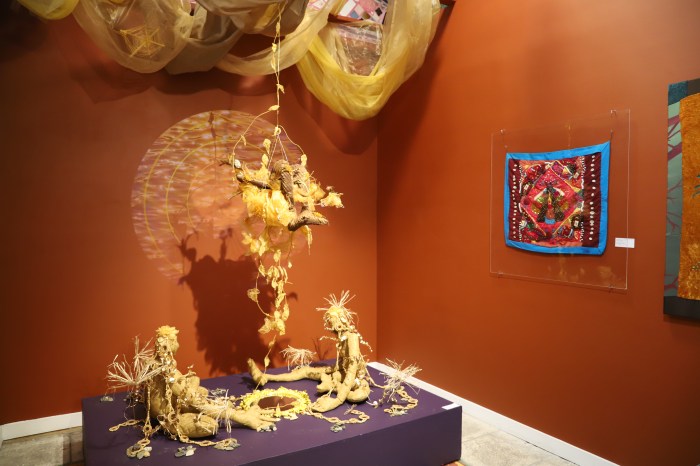
Viewers will see different places, figures, communities, and spirits in a time after the fall of consumerism, one where social hierarchies have been disbanded and there’s more of a connection between people and nature. This gives Black and Indigenous communities the agency to center their new society around healing, balance, and reintegration with the outside world.
As a release also notes, Khadar reimagines the relationship between African and Indigenous communities and their environment in a post-colonial world through depictions of spiritual rituals, caretaking of land, and animism (the belief that objects, places, and creatures all possess a distinct spiritual essence). Historically, Western civilizations intentionally demonized these practices, labeling them evil, unsophisticated, and naïve. This exhibit is meant to change that ideology.
‘After the Flowers ’ will be onsite at the cultural venue alongside the space’s central pull—the immersive mixed media art environment is completely covered with intricate mosaics made from handmade tiles, bottles, bicycle wheels, mirrors, and international folk art.
The Magic Gardens have been open to the public since 2008 and folks from around the country, and the world, have flocked to the space to admire its artist, Isaiah Zagar’s masterpieces.
Zagar came to the City of Brotherly Love in the late 1960s and began what would be called the “South Street Renaissance”, and with it, Zagar and his wife helped kickstart the revitalization of the area by reinvigorating dilapidated buildings and adding colorful mosaics on both private and public walls.
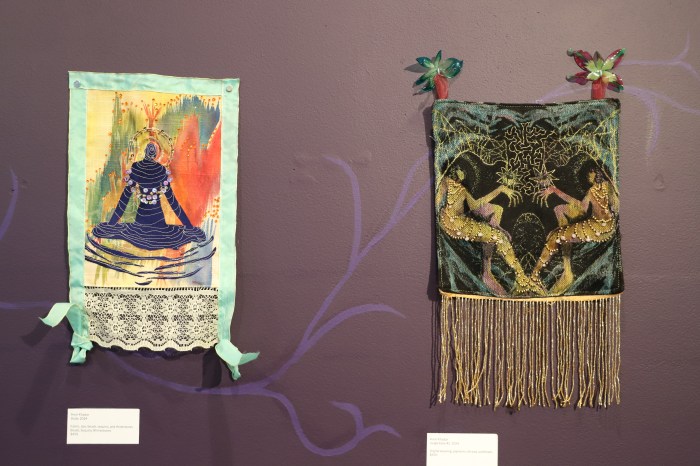
Philadelphia’s Magic Gardens is open year-round Wednesday to Monday, from 11 a.m. to 6 p.m. General admission the gardens range from $8 to $15, with discounts available to select groups. Access to exhibitions displayed in PMG’s galleries is free with admission. To learn more information about the Gardens or ‘After the Flowers Pass: Works by Amir Khadar’, visit phillymagicgardens.org.




